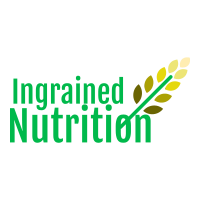There are specific nutrients that are essential to our immune system, the majority of which can be found in whole foods and adequate intake can be reached in a well-balanced diet. Consuming your vitamins and minerals in the form of supplements is not required unless you are deficient in one of the following nutrients:
Vitamin C
In adequate amounts, vitamin c may reduce the likeliness of an illness, but not the severity. This means that once you are already sick, it is likely too late to increase your intake of vitamin c and if you are not deficient there is no need for supplementation. This essential vitamin plays a role in the production of certain immune cells and collagen synthesis, promoting wound healing. Most adults’ daily requirement for vitamin c can be found in just ½ cup of broccoli. Other food sources include capsicum, kiwi fruit, strawberries and citrus fruits.
Vitamin D
Like vitamin C, adequate vitamin D intake may decrease the likeliness of illness but not the severity of symptoms. Vitamin D deficiency is more common due to the best source being sunlight which a lot of us are not getting enough of, particularly in the colder months. Food sources of Vitamin D include egg, salmon, and food products fortified with vitamin D such as margarines and some milks.
Zinc
Zinc is a trace element, helping to protect cells from oxidative damage by detoxifying free radicals and increasing the growth of immune cells. A deficiency in zinc can lead to a decreased immune response. Zinc is also important for DNA synthesis, the maintenance of cell membranes, and helps to regulate wound healing. Vegetarians and vegans are at a higher risk of being deficient in zinc due to our main food sources of zinc being meat, chicken, and fish as well as the high phytate content of some vegetarian sources of zinc which block absorption, however this can be reduced by soaking legumes and lentils and isn’t an issue in tinned legumes and lentils.
Probiotics
Probiotics have been shown to decrease the severity of an illness and reduce the likelihood of getting sick. Our gut is a key component of our immune system due to it being constantly exposed to toxins and foreign bodies from food and microbes. Probiotics’ main benefit is that they help restore balance in the intestinal microbiota, increasing the “good” bacteria, balancing out the “bad” bacteria. The following strains have good evidence behind them for immune health: Lactobacillus casei, Lactobacillus reuteri, Lactobacillus rhamnosus and LcS (Yakult).
Food based sources of probiotics include yoghurt, fermented milk drinks such as yakult and kefir, kimchi, sauerkraut.
Overall seek professional advice before spending your hard-earned dollars on supplements this winter. If you have a balanced intake and no nutrient deficiencies, your immune system is likely functioning well. Be mindful of clever marketing and take your advice from a health professional who has no conflicting interest or affiliation with brands and companies such as an accredited practising dietitian.




